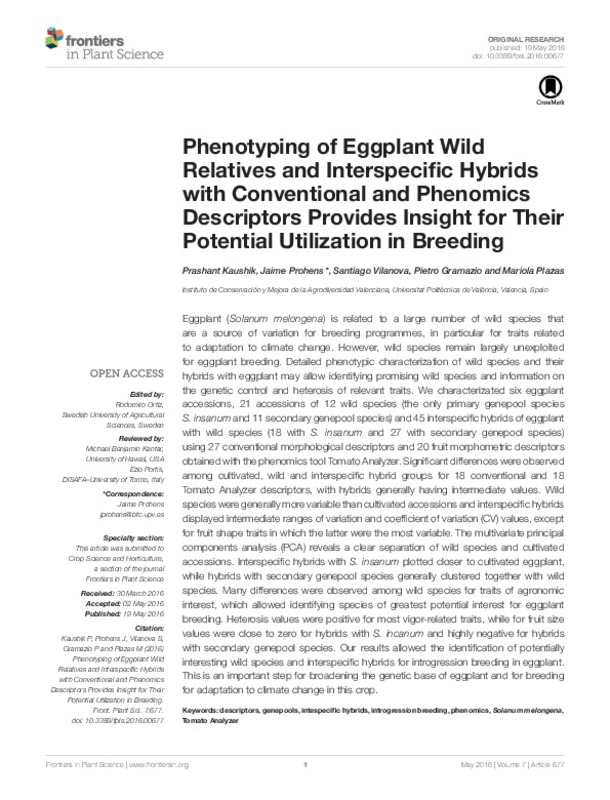JavaScript is disabled for your browser. Some features of this site may not work without it.
Buscar en RiuNet
Listar
Mi cuenta
Estadísticas
Ayuda RiuNet
Admin. UPV
Phenotyping of Eggplant Wild Relatives and Interspecific Hybrids with Conventional and Phenomics Descriptors Provides Insight for Their Potential Utilization in Breeding
Mostrar el registro completo del ítem
Kaushik, P.; Prohens Tomás, J.; Vilanova Navarro, S.; Gramazio, P.; Plazas Ávila, MDLO. (2016). Phenotyping of Eggplant Wild Relatives and Interspecific Hybrids with Conventional and Phenomics Descriptors Provides Insight for Their Potential Utilization in Breeding. Frontiers in Plant Science. 7. https://doi.org/10.3389/fpls.2016.00677
Por favor, use este identificador para citar o enlazar este ítem: http://hdl.handle.net/10251/110822
Ficheros en el ítem
Metadatos del ítem
| Título: | Phenotyping of Eggplant Wild Relatives and Interspecific Hybrids with Conventional and Phenomics Descriptors Provides Insight for Their Potential Utilization in Breeding | |
| Autor: | Kaushik, Prashant | |
| Entidad UPV: |
|
|
| Fecha difusión: |
|
|
| Resumen: |
[EN] Eggplant (Solanum melongena) is related to a large number of wild species that are a source of variation for breeding programmes, in particular for traits related to adaptation to climate change. However, wild species ...[+]
|
|
| Palabras clave: |
|
|
| Derechos de uso: | Reserva de todos los derechos | |
| Fuente: |
|
|
| DOI: |
|
|
| Editorial: |
|
|
| Versión del editor: | http://doi.org/10.3389/fpls.2016.00677 | |
| Código del Proyecto: |
|
|
| Agradecimientos: |
|
|
| Tipo: |
|









